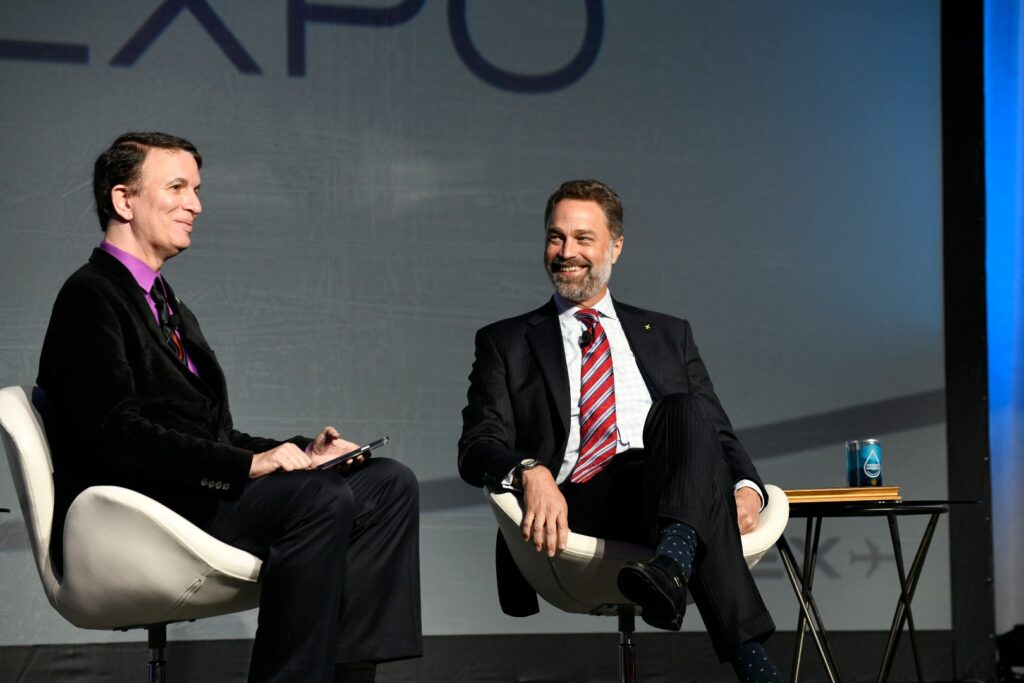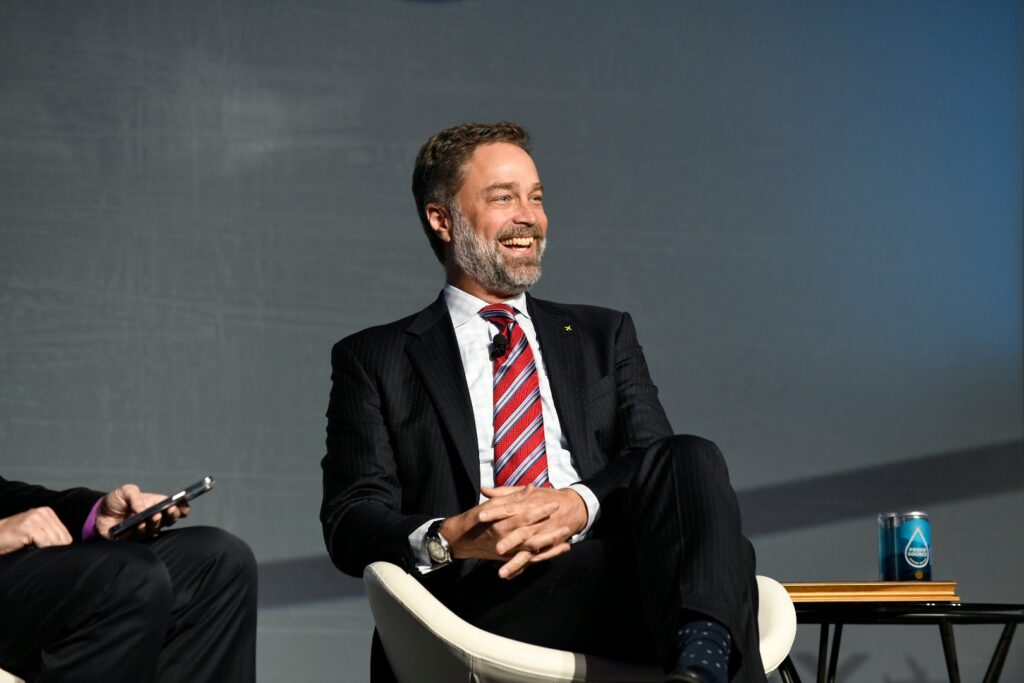Spirit CEO Ted Christie on JetBlue, Technology, and Air Traffic Control
Share
The on-going legal battles to prevent the JetBlue and Spirit merger are, according to Spirit Airlines CEO Ted Christie, “quite frankly a silly joke.” The proposed merger, and the attempts by the Justice Department to put a stop to the move formed much of a discussion between APEX/IFSA CEO Dr Joe Leader and Spirit CEO Ted Christie at this year’s APEX / IFSA Global EXPO.
In his conversation with Dr Leader, Christie said that allowing the merger to go ahead would ultimately send a “pro consumer message”, with a merged airline “delivering a much broader network, greater opportunity for our team members and lower fares for where we compete with the big four.”

Christie recognised that currently, JetBlue and Spirit have different product offerings. However, Christie said that what they share is a “maverick spirit.” He also mentioned that the airlines have complimentary networks. While JetBlue is very strong in the North-East of the US, and both have an extensive network into Florida, Spirit has a better profile in cities such as Dallas, Chicago or Atlanta.
At the APEX/IFSA Awards, Spirit was recognised as a four star LCC. Christie talked about some of the service enhancements that had made that possible, including looking at every passenger touch-point.
This includes the “big front seat” product, which gives passengers the chance to fly in a business class style seat. However, across the rest of the cabin, “we managed to shave a little bit of weight off the seat, we added a little bit of width, especially in the middle seat, and we’re seeing somewhere around a 7% improvement in overall comfort as people are surveyed across the fleet.”
The importance of technology in improving passenger experience
Technology is also being rolled out to improve the customer experience. For example, Christie said that, “we’re the only ULCC that I’m aware of in the world that offers high speed WiFi on board all aircraft.”

In addition, guests are being given more ways to interact, including SMS and chat customer service options. Christie said that the airline is seeing good satisfaction levels on those channels. Meanwhile, more self bag drop options are being offered, for example in Orlando.
According to Christie, these improvements meet the needs of younger travellers in particular, “I think that this generation just prefers less interaction and more speed. And so all of our efficiency driven improvements are around that theme.”
However, Christie sees an even bigger challenge ahead, the boarding process, which he called “my least favourite time in air travel…it drives me crazy.” Christie says, “most people don’t talk about it nearly enough”, but “we’re starting to already think about different ways for us to do this, to make the experience a little bit more seamless.”
The conversation finally turned to air traffic control issues, with staff shortages in particular leading to delays.
Christie said that Spirit had “more pilots per aircraft than pre-pandemic and more flight crew per aircraft than pre-pandemic.” Now, “it’s time for the Government to do their share”, with staffing levels having fallen away leading to issues in the North East in particular.
Christie said that the “finger pointing has to stop” and instead all parties need to come together to find a solution for the travelling public.


